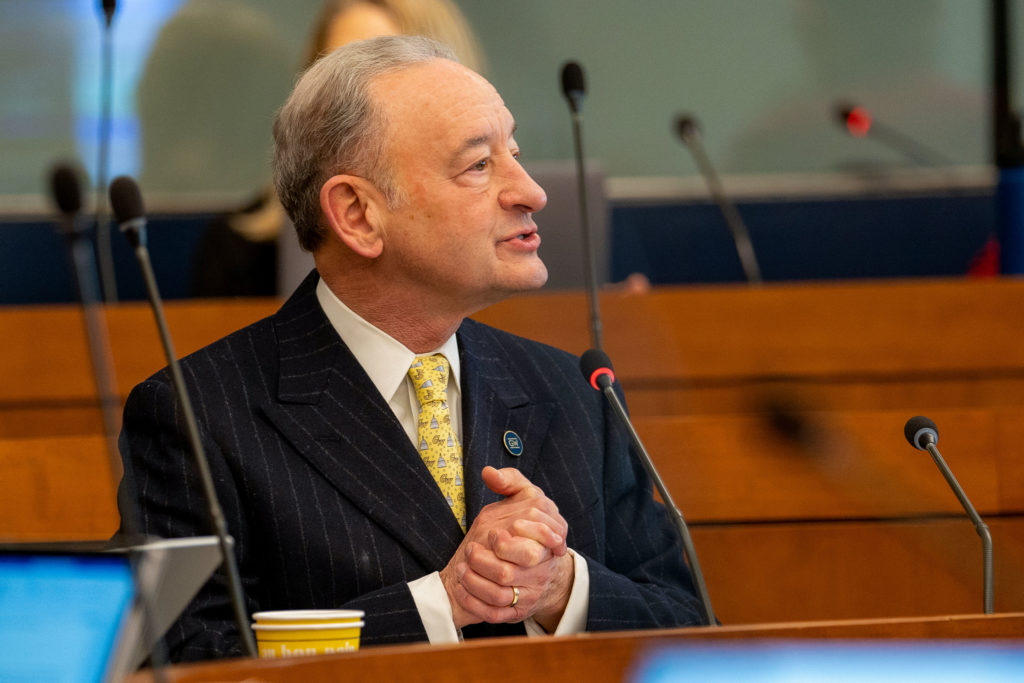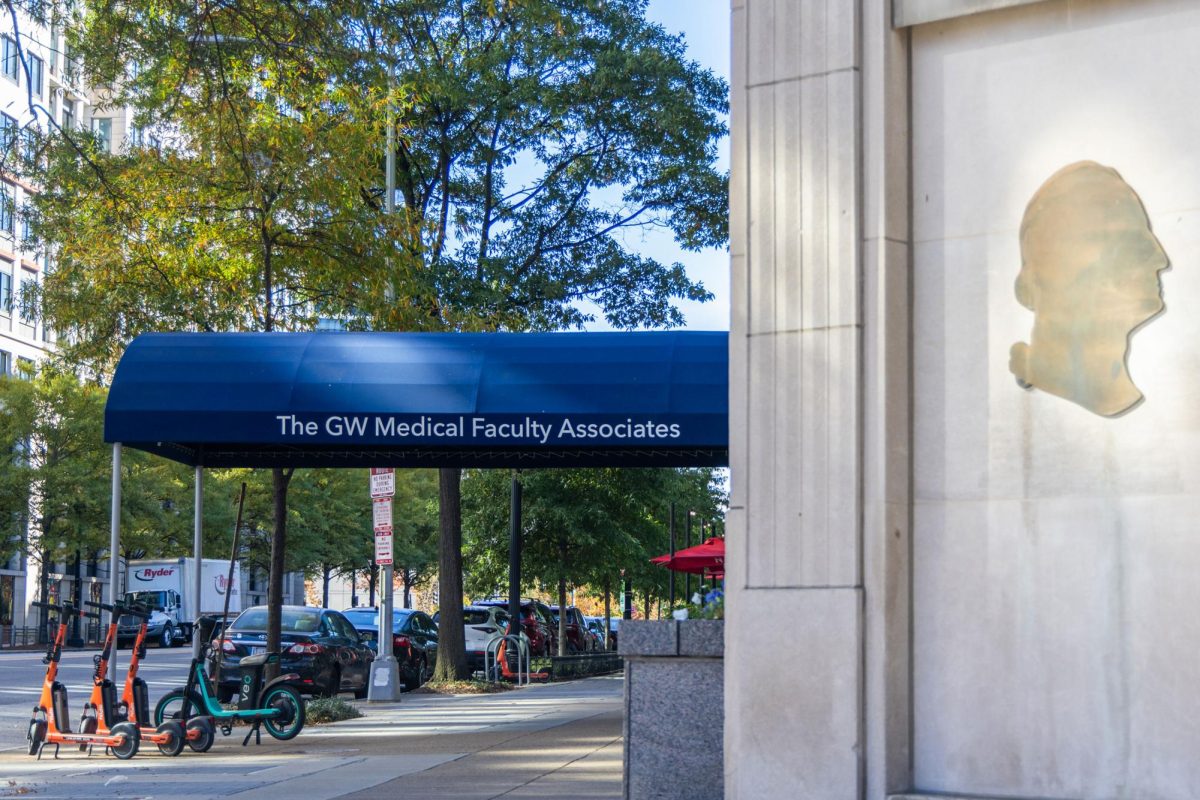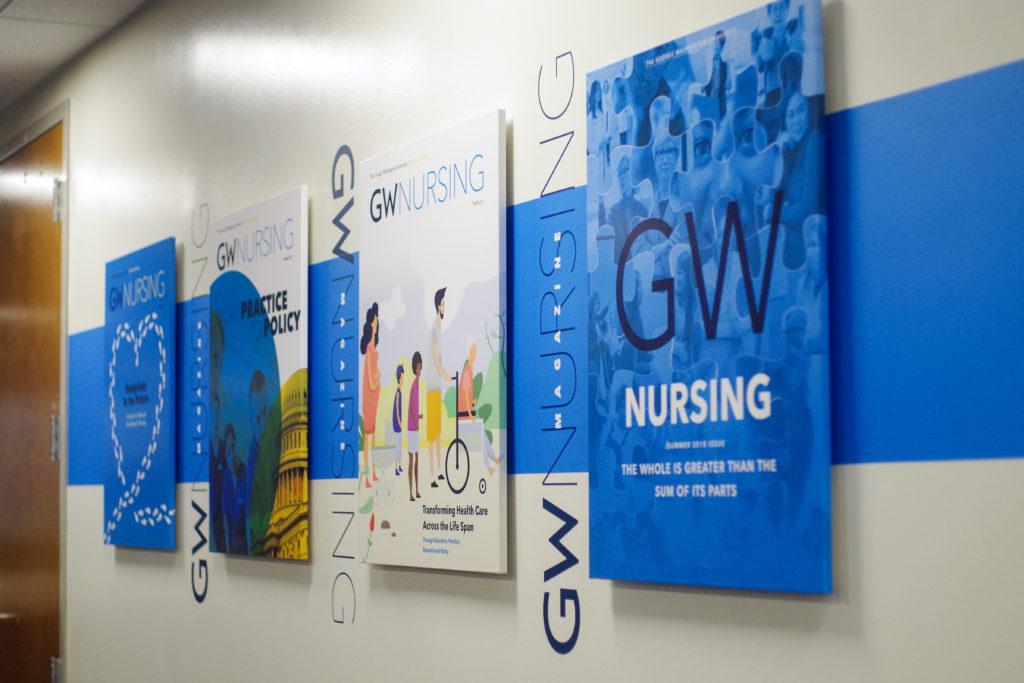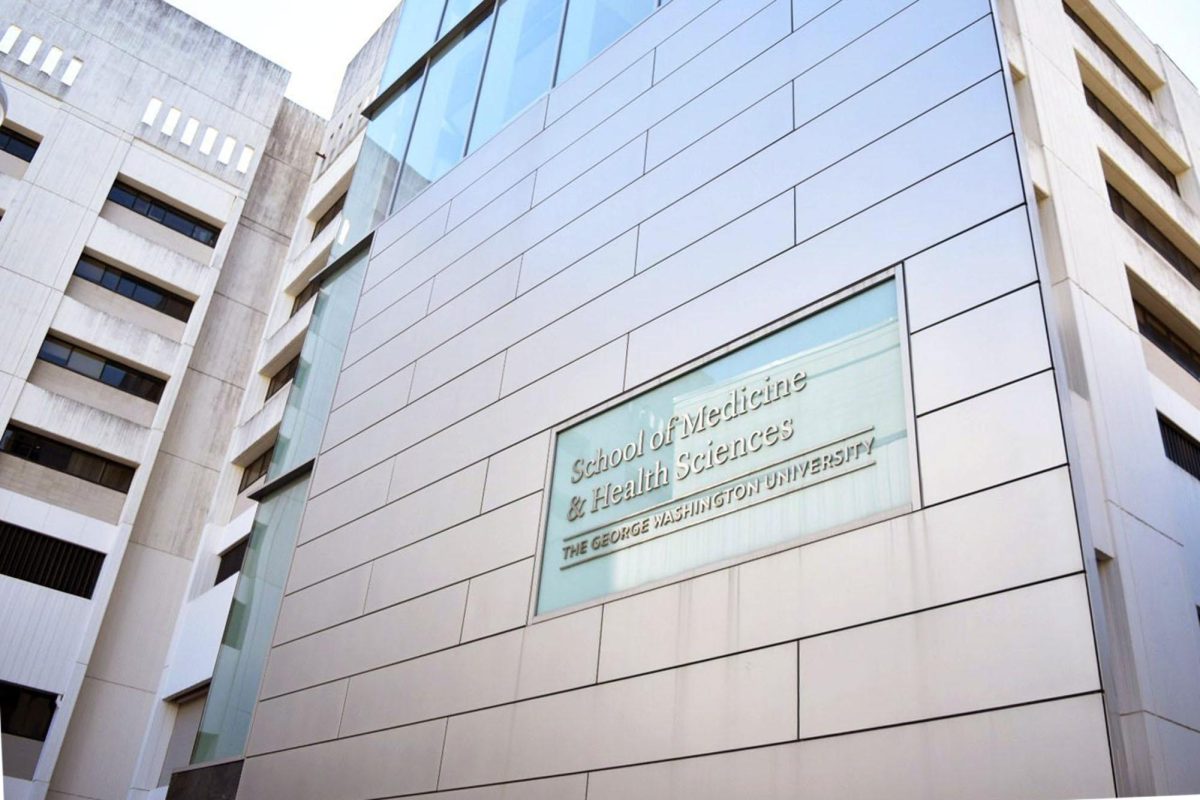Updated: Feb. 8, 2023 at 9:31 p.m.
Health-related research accounted for about 67 percent of all University research expenditures in fiscal year 2022, according to a report on GW’s research enterprise at the Faculty Senate meeting Friday.
Pamela Norris, the vice provost for research, said in the report that officials plan to modernize infrastructure like myResearch – a website for faculty to better track research proposals and awards – diversify GW’s research portfolio with more international collaboration and capitalize on the University’s location to add new research partners going forward. She said research in the social sciences, arts and humanities, science and engineering and other research accounts for about 30 percent of GW’s overall research expenditures.
“I’m happy to say the faculty and the scholars across campus really have a growing interest in diversifying our research portfolio,” Norris said.
GW’s total publications increased by 911 between 2019 and 2021, but they fell off by 131 between 2021 and 2022, according to the report. Total federal expenditures have increased from more than $150 million in FY 2019 to about $190 million in FY 2021, according to the report.
She said in December 2022, The National Institutes of Health awarded GW’s Biostatistics Center a $51 million grant over five years for a research project that aims to stop, prevent or reverse Alzheimer’s Disease in individuals with prediabetes or Type 2 diabetes. Norris said the principal investigator of the study, Marinella Temprosa – an assistant research professor in the Milken Institute School of Public Health – will “coordinate” clinical trials that provide administrative and clinical operations and data management support.
GW’s total research expenditures from the federal government, businesses, nonprofit organizations and institutional funds have largely remained flat at around $250 million per FY since 2018, according to the report.
The NIH granted GW $80 million in FY 2022 for research, according to the NIH website, which ranks ninth out of GW’s 12 peer schools in terms of research funding. Total NIH funding has dropped 28 percent in the past three fiscal years, but Norris said NIH award data by itself does not completely “reflect an institution’s research productivity or impact in a given year” since many awards are distributed over multiple years and researchers receive funds from nonfederal contributors.
Norris said the launch of myResearch last February consolidated the research application process into a streamlined system, modernizing GW’s research infrastructure. She said faculty members submitted more than 893 research proposals through the website, drawing $85.1 million in research awards.
She said faculty are interested in international collaboration, doing work with “export-controlled information,” clinical research and contracting with “faculty-controlled spin-off companies,” which transfer research out of laboratories and into the world. Norris said strengthening the research enterprise will require more faculty training in areas like human trials, export controls and human subjects research.
“It’s really important I think that they understand first what we have to offer is a really well-educated student, educated in a broad University who understands technology of these companies as it connects to ethics and to policy and to broader decisions,” Norris said.
Norris said the U.S. presidential memorandums released in January 2021 to guard against “undue” foreign influence in research, imposing stricter guidelines on researchers.
She said scholars like GW must develop a research security program in response this year, which includes training in cyber security, foreign travel, research security and export control – the process of regulating the export of goods, software and technology – to ease the “burden” of scholars’ compliance with the new federal regulations.
Norris said research faculty should set up an Open Research Contributor ID, a form of a persistent digital identifier, to hold their research information like publications, board services, editorial roles or presentations because it sticks to researchers when changing institutions or jobs.
“It follows you, so heaven forbid you leave and go to another institution, it goes with you,” Norris said. “You get married, your name changes, it knows who you are and it continues to link that information.”
Norris said she has been “leveraging” the University’s location to increase funding from corporations like Raytheon and build GW’s reputation to foster partnerships with federal organizations like the Office of Naval Research and research organizations in the District like the Southeastern Universities Research Association.
“I think part of my job is really talking to the external audience about the excellence of GW to promote our reputation and also to make connections for scholars within the community,” Norris said.
Later in the Faculty Senate meeting, interim University President Mark Wrighton said incoming University President Ellen Granberg visited campus last week and is planning to visit GW in three- to four-day periods every month until she begins her term in June.
“The Board of Trustees has done an outstanding job in recruiting Ellen Granberg to be the 19th president,” Wrighton said.
Officials also delivered updates on GW’s freshman retention rate and undergraduate application numbers at the meeting.
Provost Chris Bracey said in a report to the Senate that freshman fall to spring semester retention rates increased to 97.7 percent, which he said is “comparable” to pre-pandemic numbers. Officials said during a 2021 senate meeting that the first to second year retention rate for the Class of 2024 was 91 percent, higher than the Class of 2023’s 88 percent and near the Class of 2022’s 92 percent.
“This, I think, is a testament to the strength of a student experience that we offered in the fall,” he said. “And I’m confident that we’ll continue to offer the same sort of experience in the spring semester.”
Bracey said the number of applications for the Class of 2027 is also “similar” to pre-pandemic levels. He added that officials launched a pilot program deferring the enrollment of Class of 2026 applicants for a semester so they would begin in spring 2023 rather than fall 2022.
“Traditionally, we had about 10 to 15 first-year students start in the spring, but it’s clear that our academic reputation and relentless pursuit of excellence continue to attract talented students, and we are indeed worth the wait for someone,” he said.
The Senate also approved a set of changes to the Faculty Organization Plan that the Professional Ethics and Academic Freedom Committee presented in a resolution. The changes included instituting procedures for determining whether Faculty Assembly meetings are held virtually or in a hybrid format, updating the official titles of administrators and incorporating gender-neutral language into the governing document.
The committee’s resolution also changed the number of faculty needed to call a special meeting of the Faculty Assembly from 50 or more members to 10 percent of the Faculty Assembly.
Linda Briggs, an associate professor in the School of Nursing, proposed an amendment to the committee’s resolution to allow members of the senate to decide by vote whether or not the senate meets in a virtual, in person or hybrid format for the next academic year, but the amendment failed 18 to four.
This post has been updated to correct the following:
The Hatchet incorrectly reported that health-related research accounted for 70 percent of GW’s research expenditures. Health-related research counted for about 67 percent of research expenditures. The Hatchet incorrectly reported that officials plan to update myResearch with more internal collaboration. Officials plan to update myResearch with more international collaboration. The Hatchet incorrectly reported that Biden released memorandums in August 2022. The U.S. presidential memorandum was released in January 2021. The Hatchet also incorrectly reported that GW has launched a security research program. Norris said universities like GW should develop a security research program. We regret these errors. The Hatchet also clarified that faculty are interested in various research initiatives and clarified the total expenditures of GW.











